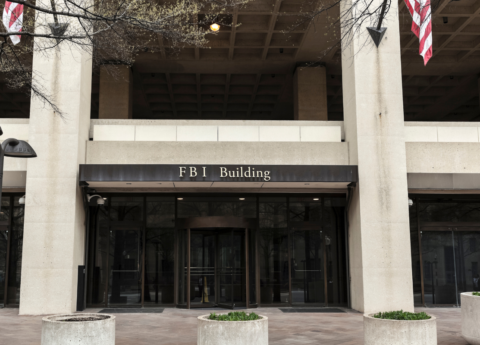A robust body of research shows that locking kids behind bars harms their mental and physical well-being, gets in the way of their education, makes them more likely to be incarcerated again and fails to reduce crime in the community. But House Bill 3 (HB 3) would increase the number of kids detained in Kentucky at a time when the juvenile system is in crisis. The bill would also make it more difficult for some young people who have juvenile records to move on and become successful adults.
Instead of increasing penalties, lawmakers should reject the false narrative around a surge in youth crime in Kentucky, prioritize investments in community-based programs and recognize that keeping kids away from court builds safer communities and more successful children. We should all strive for a commonwealth where kids — no matter their race, gender or neighborhood — can realize their potential, even when they make mistakes.
Increases youth detention pre-adjudication
HB 3 expands who is detained pretrial or pre-adjudication, even though judges already have the ability to detain youth based on an initial assessment. In fact, as the graph below shows, when law enforcement seeks detention for kids charged with violent offenses, they are almost always detained, with a 90% detention rate in 2022.
The bill makes detention mandatory for children charged with a “violent felony offense” as defined in Kentucky statute for up to 48 hours (not including weekends or holidays), pending a detention hearing, unless they are under the age of 11. Such mandatory detention removes discretion from law enforcement, Court Designated Workers (CDWs) and judges, who under current law consider the facts and circumstances of each case and act based on that information. It is important for this process to continue because the charge is one factor to consider but should not be the sole driver of the decision to detain. In fact, mandatory detention based on the charge alone is much harsher than what adults in Kentucky experience pretrial in the criminal legal system.
In addition, the category of “violent felony offense” in Kentucky is much broader than in most states — which unlike in Kentucky do not define as a violent offense: burglary (which has been shown to rarely involve physical violence or even the possibility of physical violence), arson, escape or attempt to commit any of the offenses categorized as violent. In the FBI’s Uniform Crime Reporting (UCR) Program, violent crimes are defined as “those offenses that involve force or threat of force” and are limited to: murder/nonnegligent manslaughter, rape/sexual assault, robbery and aggravated assault. The application of mandatory detention in HB 3 to all kids with a charge that falls under the broad category of “violent felony offense” in Kentucky statute is part of what this provision in the bill so harmful.
If HB 3 becomes law, hundreds more kids each year who would otherwise have been released could be detained. As shown in the graph below, in 2022 there were 437 juvenile complaints for “violent felony offenses” that resulted in release after being cited or taken into custody (note that a complaint can have more than one charge and a child can have more than one complaint). If HB 3 were in effect at that time, the children who were released would have instead been detained even if the best course of action would be an option not involving detention. Because even short-term detention is detrimental to children, a blanket requirement like the one proposed in HB 3 will harm children and families and will significantly increase the population in juvenile detention centers – a slide backwards from the notable progress that has been made over the last decade in diverting children from secure detention facilities.
Under HB 3, kids who may not have been detained at all under current law could end up locked up significantly longer than 48 hours if taken into custody on a Friday evening or a holiday. The bill also requires that they be evaluated for eligibility to receive behavioral health services and substance abuse treatment while being detained, and that such services be provided by the Justice and Public Safety Cabinet by contracting with qualified mental health providers. Although this language may seem positive, it could result in longer stays in detention so services can be provided when the child would be better served receiving services in the community.
Diversion from courts to community-based responses can reduce deeper system involvement and ensure that kids get the help they need surrounded by the people who know them best.
Keeps Kentuckians from moving on from mistakes made when they were young
Under Kentucky law, juvenile records are generally confidential with limited exceptions for law enforcement, schools, courts and people harmed, which means they will not show up on criminal record checks. HB 3 waives these confidentiality provisions for all kids who have admitted to or been adjudicated for a “violent felony offense” and the records remain open for three years after the date of admission or adjudication. If the child is not convicted of any additional public offense within the three year period, the records once again become confidential.
This change could negatively affect many hundreds of Kentucky kids each year, creating barriers for becoming successful adults pursuing education, training and employment opportunities. Maintaining the confidentiality of juvenile records is a critical part of kids having an opportunity to leave adolescent mistakes behind and move in a better direction with their lives.
Appropriates funding for Louisville detention center but not other needed juvenile system investments
HB 3 provides $17.1 million to the Department of Juvenile Justice (DJJ) to renovate the Jefferson County Youth Detention Center in fiscal year 2024 and $2 million to DJJ for its operating costs that year. DJJ has shipped Louisville kids to facilities hours from their homes since the local facility closed in 2019, making life harder on the children and families involved and contributing to the current juvenile system crisis in Kentucky.
The bill also invests $5.8 million for costs for transporting kids, $9.6 million for staffing needs at detention centers and $4.5 million for renovation of the Jefferson Regional Juvenile Detention Facility in Lyndon.
HB 3 also does not address the longstanding, severe budget challenges in Kentucky’s juvenile system – such as funding to improve staffing issues that have played a key role in unsafe conditions – or much-needed investments in community-based programs that can make a positive difference in kids’ lives.
Makes changes related to truancy
HB 3 also contains changes that could impact truancy cases, including:
- A requirement that FAIR (Family Accountability, Intervention and Response) teams, which are community-based teams who work in conjunction with Court Designated Workers (CDWs) to keep kids away from the formal court system by providing services and diversion opportunities, report to the court if they fail to act on a truancy case within 90 days of referral.
- A provision that if a CDW makes a finding that a truant child failed to complete diversion due to “lack of parent cooperation,” and the finding is referred to the court, the court can order the parent to cooperate and refer the case back to the CDW.
- A new provision in the juvenile code referencing an existing statute that allows a parent who “knowingly induces, assists or causes a minor to become a habitual truant to be charged with “unlawful transaction with a minor in the third degree,” a Class A misdemeanor.
It is unclear what the impact of the FAIR team provisions will be, and judges already have the ability to hold parents accountable. The concern is that the new language in HB 3 will lead to more judges charging parents under the unlawful transaction with a minor statute. Chronic school absenteeism is undoubtedly a concern, but it is often due to challenges kids are experiencing at home and/or school, and a need for services or supports. The priority should be to connect families with these supports, not to further criminalize people that are already facing difficulties. That only serves to further destabilize families and is counterproductive to the goal of getting kids back in the classroom.
Makes damaging policy changes that don’t support public safety
Given the well-documented harms of detention on kids and their communities in both the short and long-term, and the harm that will be done if juvenile records are public, the damage of proposed changes to Kentucky’s juvenile system are significant. Funding for a facility in Louisville shouldn’t be tied to policy changes that increase youth detention and system involvement, and that make it more difficult for them to be successful as adults.
The juvenile system should be geared toward helping kids, which means funding the community-based services that allow them to succeed, not further entangling them with a failing system that does more harm than good.
Updated March 7, 2023.




